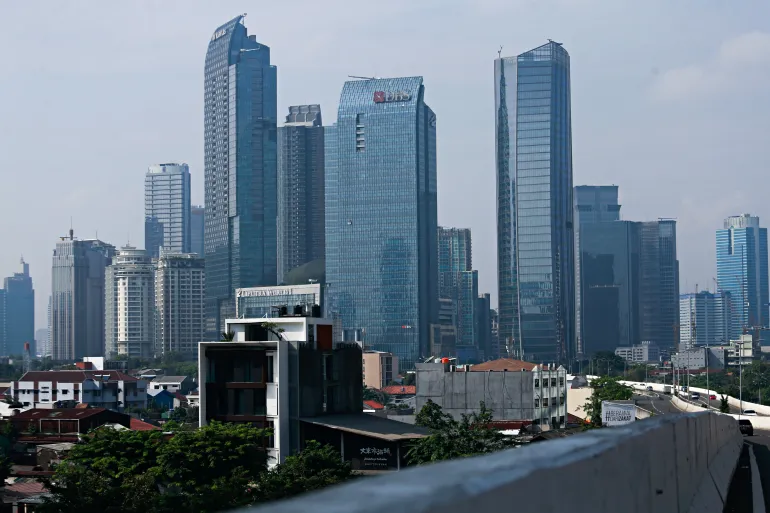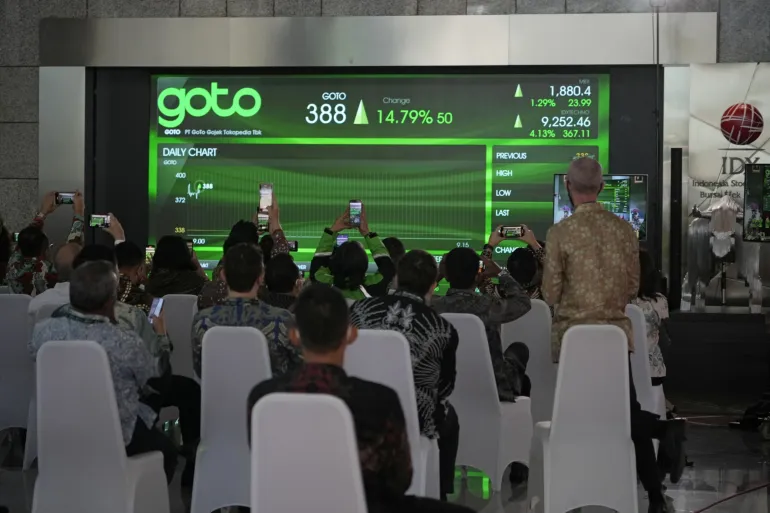Jakarta, Indonesia – The recent temporary ban on major platforms, including PayPal, has raised concerns about Indonesia’s ambitions to become a leading digital economy in Southeast Asia. President Joko “Jokowi” Widodo has prioritized digital infrastructure as part of his Making Indonesia 4.0 initiative, aiming to position the country among the world’s top 10 economies.
Despite efforts to boost the digital economy, which has seen Indonesia become the second-largest recipient of venture capital in Southeast Asia and home to 13 tech unicorns valued over $1 billion, the government is also tightening its grip on internet companies for the nation’s 270 million residents.
This tightening includes a new licensing system intended to improve data protection and facilitate the removal of content deemed disruptive to public order. The recent ban, which targeted PayPal, Yahoo, and various gaming platforms, was enforced after these companies failed to register by the deadline, leading to confusion and frustration among users.
Freelance voice actor Jati Andito expressed his dismay at the ban, stating that PayPal is essential for his business partnerships. The Ministry of Communication and Information Technology eventually restored access to Yahoo and the gaming platform Steam after they complied with the licensing requirements. PayPal was also granted an extension to register, allowing access to its services to resume.

Indonesia ranks 44th out of 63 countries and territories in the IMD World Competitiveness Ranking 2022
While PayPal has now complied with the regulations, the incident raises concerns about Indonesia’s regulatory climate for tech companies, especially international ones. Bhima Yudhistira Adhinegara from the Center of Economic and Law Studies labeled the bans as detrimental to Indonesia’s tech sector, particularly the gaming industry valued at $1.6 billion.
He highlighted the negative correlation between unclear regulations and the country’s appeal to foreign investors, warning that such abrupt bans could deter future investments in local startups.
Pingkan Audrine from the Center for Indonesian Policy Studies noted that the regulatory framework’s requirements are cumbersome and problematic. Others agree that while oversight is necessary, the government’s execution has led to confusion and uncertainty.
Joel Shen from Withers law firm pointed out that the government’s reversal on the bans undermines its regulatory credibility, causing skepticism among the foreign business community regarding the consistency of Indonesian regulations.
Advocacy representative Ariehta Eleison Sembiring criticized the sluggish rollout of the licensing system, indicating that delays reflect poor governance and contradict Widodo’s vision for a rapidly digitalizing industry.

The success of startups such as GoTo has fuelled bullish predictions about the growth potential of Indonesia’s digital economy
On the other hand, some observers, like Glenn Wijaya of Christian Teo & Partners, view the government’s stringent measures as beneficial for consumers and businesses. They argue that a registered tech environment would enhance consumer security and provide companies better access to authorities during incidents like data breaches.
Wijaya dismissed concerns about government access to personal data, citing the existence of over 40 laws governing personal data protection in Indonesia as of June 2020.

